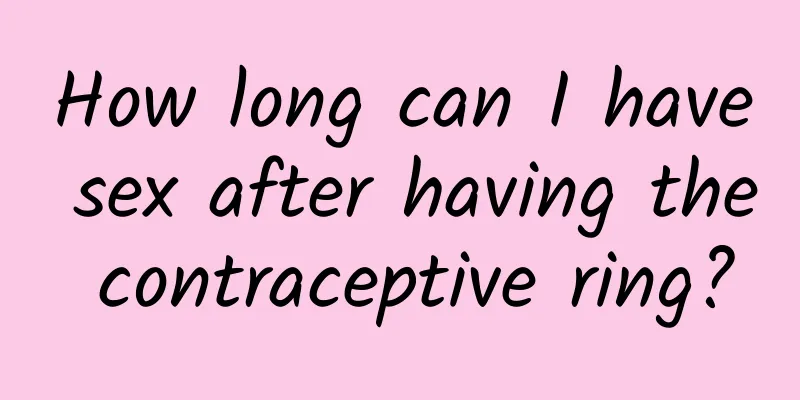What to do if your child has itchy teeth

|
It is common for children to have itchy teeth in daily life. Generally speaking, the symptoms of itchy teeth are mostly because the children have reached the period of tooth replacement. During this period, such symptoms are often shown. During this period, you can give the children some calcium gluconate or vitamin C, and pay attention to oral hygiene. Of course, in addition to itchy teeth during the period of tooth replacement, if there is gingival hyperplasia or gingivitis, it may cause such phenomenon. 1. Tooth replacement period Generally, children start to change their teeth at the age of 6, and this may be a symptom caused by children's tooth replacement. Recommendation: Take calcium gluconate and vitamin C orally, pay attention to oral hygiene, and prevent inflammation. 2 Gingivitis or gingival hyperplasia It may be related to gingivitis or gingival hyperplasia. Recommendation: You need to actively see a dentist for a check-up. Generally, it is necessary to remove local irritants, eliminate periodontal diseased tissue, remove loose and severely necrotic teeth, fix slightly loose teeth, and take oral amoxicillin, metronidazole, and ofloxacin tablets for treatment. Note: Drink plenty of water and avoid eating raw, cold and irritating foods. Increase nutrition and improve your own resistance. 3 Precautions for children's tooth replacement 1. Pay attention to the growth of deciduous teeth and permanent teeth and see a dentist regularly to detect problems and solve them early. If you find that permanent teeth are growing next to the deciduous teeth, but the deciduous teeth have not fallen out, forming a double row of teeth, you should take your child to the hospital as soon as possible to remove the retained deciduous teeth; if the gap between the upper incisors is too large, deformed teeth are growing from the position of the upper incisors, or an incisor is growing from an abnormal position, this means that there may be multiple teeth growing in one place, and you should go to the hospital for treatment. 2. Encourage your children to brush their teeth every day, once in the morning and once in the evening, to prevent tooth decay. Children should use children's special toothpaste and toothbrush to brush their teeth, and brush their teeth correctly, about two to three minutes. In addition to brushing teeth, it is best for children to rinse their mouths after each meal to maintain oral hygiene. 3. Eat more foods with a certain degree of hardness. During the period of teeth replacement, children should eat more foods with high fiber and a certain degree of hardness, such as beef, carrots, celery, corn, etc., to maintain stimulation to the deciduous teeth and promote the shedding of deciduous teeth on time. On the other hand, through chewing movements, the development of the gums, jaws and facial bones is promoted. In addition, let your children eat more solid foods, foods low in sucrose, and less snacks. 4. Correct children’s bad habits. Correct children’s bad habits in time, such as sticking out the tongue, biting the tongue, biting fingers or pencils, licking teeth with the tongue, etc. These bad habits will affect the growth of children’s teeth and cause tooth deformation. 5. Prevent trauma: Take good care of your children and try to prevent tooth loss caused by trauma. When a child's tooth falls out due to trauma, in order to find the lost tooth back, if the tooth surface is dirty, immediately rinse off the dirt with clean water, put it in milk or water, and go to the hospital as soon as possible. The lost tooth can be replanted and fixed. 4 How to prevent gingivitis in children 1. Maintain oral hygiene and develop good hygiene habits. Brush your teeth every morning and evening or after meals, rinse your mouth after meals, and promptly remove food debris and bacteria in the mouth and between teeth. Using fluoride toothpaste can help prevent tooth decay. 2. Perform pit and fissure sealing in time after the permanent teeth erupt. For children aged 6-12 years old, perform pit and fissure sealing in time after the permanent teeth erupt. That is, seal the pits and fissures of the teeth with a layer of resin material to prevent harmful substances such as food debris and bacteria from entering the tooth body, thereby preventing tooth decay. 3. Pay attention to children’s diet. Children’s diet should be diversified. Eating some hard and tough foods can promote the growth and development of their jaws and teeth. Do not let children sleep with candy in their mouths or go to bed after eating sweets without brushing their teeth or rinsing their mouths, because sugar becomes sour in the mouth and can easily corrode the teeth and cause tooth decay. 4. Treat tooth decay in a timely manner. Shallow cavities should be filled with appropriate materials after removing the damaged tooth substance to restore the shape and function of the teeth and prevent further decay. Deep cavities of tooth decay should be treated appropriately according to the specific situation. |
<<: Orthodontic surgery procedure for adults
Recommend
Black discharge without menstruation
Generally speaking, every woman will have her per...
What happens if you take a bath after drinking alcohol?
Taking a shower is something everyone must do in ...
What is the treatment for Behçet's disease?
Behcet's disease is relatively unfamiliar to ...
What is Yuan Qi?
When it comes to Yuan Qi, perhaps not many people...
The efficacy and function of Xianglingzi
Xianglingzi can clear away heat and fire, dispel ...
What kinds of fruits are good for iron supplementation?
There are many kinds of fruits, and you cannot ch...
Is it taboo to sleep in the living room?
From the perspective of Feng Shui, the decoration...
Where can I get quick results from stomachache massage?
There are many patients with stomach problems in ...
Can I eat aloe vera while breastfeeding?
Everyone is very familiar with aloe vera. Many pe...
What to do if your throat hurts
Sometimes people may find that they have a sore t...
The efficacy and function of deer blood tablets
Due to the accelerated pace of life and fierce so...
Daily Uses of Huoxiang Zhengqi Water
For many people's home medicine cabinets, Huo...
Tonsillectomy cured bad breath
Bad breath is a very embarrassing thing. When you...
Effects of Hedyotis diffusa
Houttuynia cordata is a Chinese herbal medicine. ...
Is it okay to stop taking Chinese medicine for a few days?
When taking Chinese medicine to treat a disease, ...









